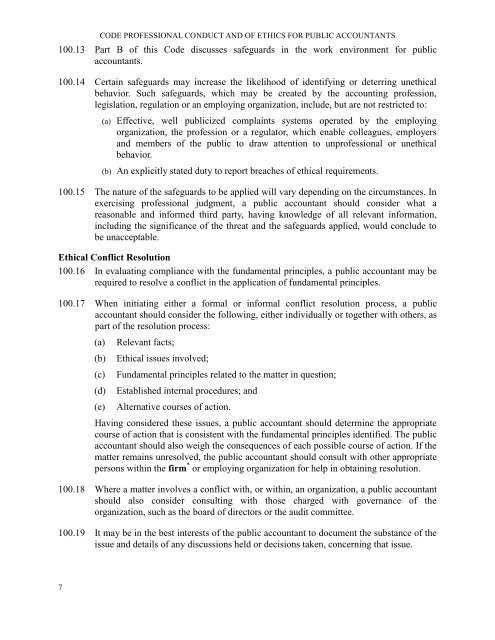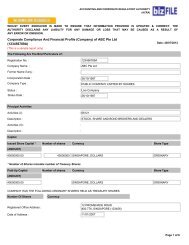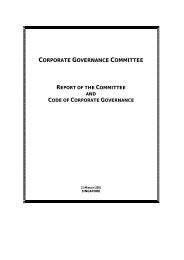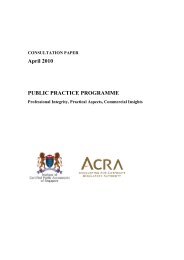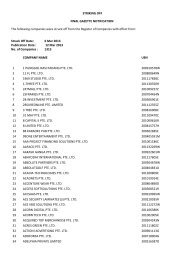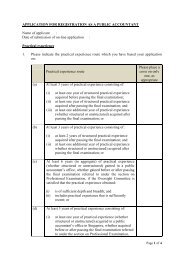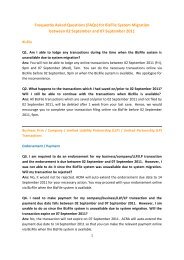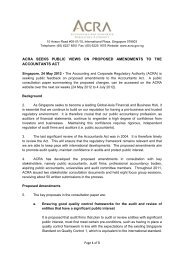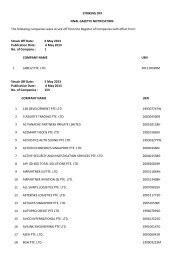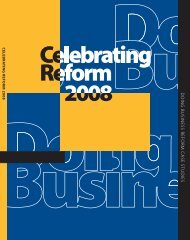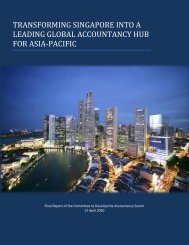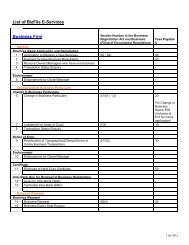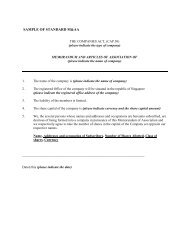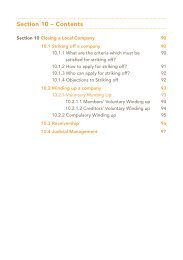Exposure Draft - ACRA
Exposure Draft - ACRA
Exposure Draft - ACRA
You also want an ePaper? Increase the reach of your titles
YUMPU automatically turns print PDFs into web optimized ePapers that Google loves.
CODE PROFESSIONAL CONDUCT AND OF ETHICS FOR PUBLIC ACCOUNTANTS<br />
100.13 Part B of this Code discusses safeguards in the work environment for public<br />
accountants.<br />
100.14 Certain safeguards may increase the likelihood of identifying or deterring unethical<br />
behavior. Such safeguards, which may be created by the accounting profession,<br />
legislation, regulation or an employing organization, include, but are not restricted to:<br />
(a) Effective, well publicized complaints systems operated by the employing<br />
organization, the profession or a regulator, which enable colleagues, employers<br />
and members of the public to draw attention to unprofessional or unethical<br />
behavior.<br />
(b) An explicitly stated duty to report breaches of ethical requirements.<br />
100.15 The nature of the safeguards to be applied will vary depending on the circumstances. In<br />
exercising professional judgment, a public accountant should consider what a<br />
reasonable and informed third party, having knowledge of all relevant information,<br />
including the significance of the threat and the safeguards applied, would conclude to<br />
be unacceptable.<br />
Ethical Conflict Resolution<br />
100.16 In evaluating compliance with the fundamental principles, a public accountant may be<br />
required to resolve a conflict in the application of fundamental principles.<br />
100.17 When initiating either a formal or informal conflict resolution process, a public<br />
accountant should consider the following, either individually or together with others, as<br />
part of the resolution process:<br />
(a)<br />
(b)<br />
(c)<br />
(d)<br />
(e)<br />
Relevant facts;<br />
Ethical issues involved;<br />
Fundamental principles related to the matter in question;<br />
Established internal procedures; and<br />
Alternative courses of action.<br />
Having considered these issues, a public accountant should determine the appropriate<br />
course of action that is consistent with the fundamental principles identified. The public<br />
accountant should also weigh the consequences of each possible course of action. If the<br />
matter remains unresolved, the public accountant should consult with other appropriate<br />
persons within the firm * or employing organization for help in obtaining resolution.<br />
100.18 Where a matter involves a conflict with, or within, an organization, a public accountant<br />
should also consider consulting with those charged with governance of the<br />
organization, such as the board of directors or the audit committee.<br />
100.19 It may be in the best interests of the public accountant to document the substance of the<br />
issue and details of any discussions held or decisions taken, concerning that issue.<br />
7


